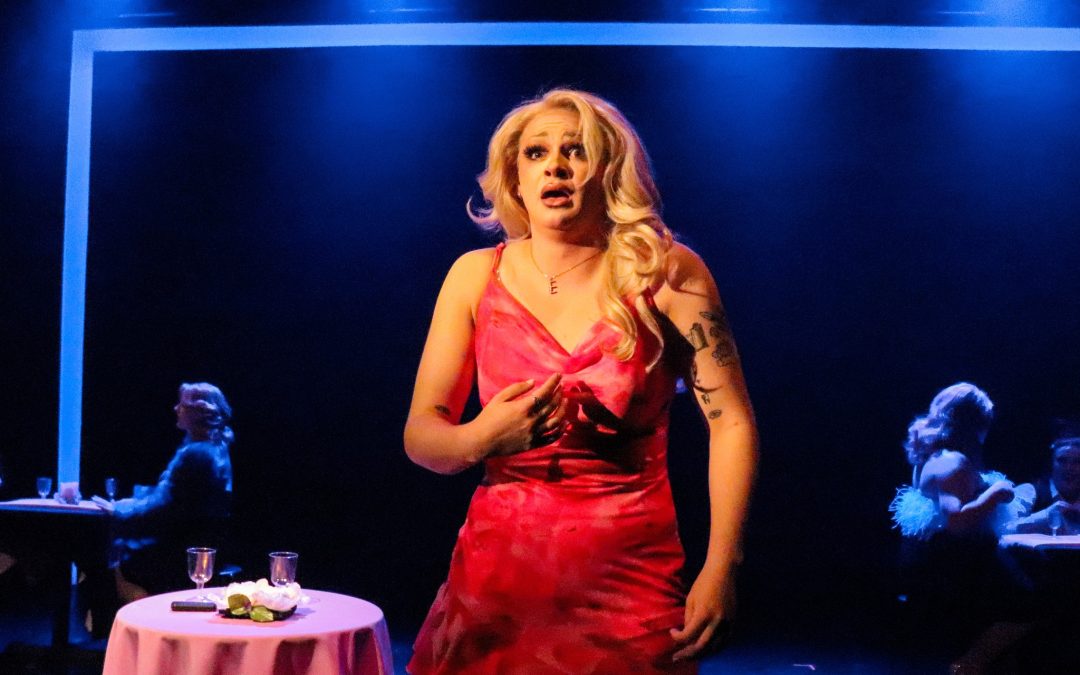By Grace Barnum
Being queer in the entertainment and theater community comes with its challenges, but it also offers a powerful outlet to express yourself through creative measures. Parker Mae Taylor, a trans theater actor and performer, spoke openly to our IUI Rythm and Revolution class about his journey through his transition, both on and off the stage. He voiced his struggles with the difficult change of being cast from female roles to male roles, navigating the change in identity he was expressing on stage. Not only did he change his appearance from feminine to masculine, but Parker also had to adapt to the change in his voice. After being on hormones for many months, his voice dropped from the soprano range to a much deeper register. Singing becomes muscle memory after years of practice so when your voice goes through a significant shift it can take time and dedication to get used to it. This did not tear him down. Parker relearned how to sing and he continued to give his best efforts when performing which showed. You can truly feel the passion he has for his art from hearing his story.
Theater and music can be a safe space for self-expression. It was inspiring to hear from someone who has experienced this firsthand. For Parker, the performing arts is such a powerful tool. He shared an experience he had playing the lead role in the musical Next To Normal. It was his first lead singing role in almost two years after starting hormones. Not only was it impactful for him to experience, but being trans also caught the attention of the audience in a positive way. It completely changed the way they looked at the character. In the musical, this character is supposed to be portrayed as the “perfect son.” But as Parker pointed out, he’s actually “not the perfect son,” and that difference resonated with the audience. They were moved by the authenticity he brought to the role, showing that being trans does not lessen your impact on a character, but makes them more real.
Throughout history, queer representation was often hard to find in the performing arts industry. Parker touched on the fact that not having role models in your life can make it extremely difficult to be fully comfortable with expressing who you are. Growing up, he didn’t have any trans men to look up to, which made it hard for him to see all the possibilities ahead. He was never taught about being trans in school so he didn’t even realize it was an option. Because of this, he spent a lot of his early days performing as a female. After transitioning, he had to learn about himself in a way that he never did before. Without representation of this, it added to the challenge. Parker expressed his gratitude for the increasing inclusivity throughout the years. Young trans performers should never know the feeling of being alone.
Parker also expressed his passion for drag performing. He only recently got into it, but it has already made a great impact on him. They take popular musicals and change them in a creative way by adding storylines that involve the queer community, or simply just adding in pop songs for fun. Even though some people may just see going to a drag show as a fun weekend activity, Parker explained how it means much more than that. “It is about making a statement. It is about shoving ourselves out there and making a point while also making it fun and digestible”, he says. In an adaptation of Hairspray titled Hairslay, Parker, who performed in the show, shared how the creators adjusted part of the story to make it relatable to the queer community. They added a love story between two female characters. Representation like this is so important. Even in a drag show where they are obviously supportive of the queer community, it can still have a profound impact on someone’s perception to see queerness portrayed in a musical they already know and love. When familiar characters are reimagined in a way that feels relatable, it can be incredibly meaningful for a queer person to see themselves reflected on stage.
I am so thankful to have been able to hear Parker’s story. His journey and passion for theater was truly inspiring. Even for me, someone who is not queer, I can appreciate the hardships he went through and his determination to never give up on his dreams. It is stories like his that keep the industry moving in the right direction, making a safe space for queer voices to be heard.
